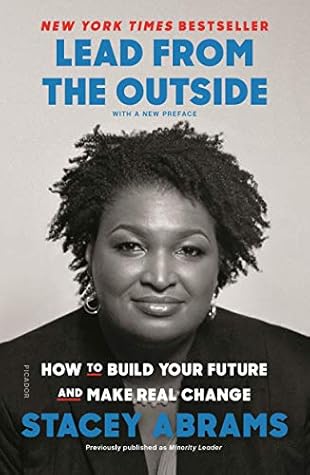More on this book
Community
Kindle Notes & Highlights
We must examine our actions to ensure that our reactions are genuine and not a fear-driven response.
As a leader, I have learned to be more accessible, not because that’s the feminine thing to do but because it is more effective, and I watched smart women leaders who learned how to do so authentically.
Harriet Tubman once declared, “I freed a whole lot of slaves. I could have freed a whole lot more, if they’d only known that they were slaves.”
My boss in the city law department once told me about experience: some people have thirty great years but others have the same crappy year thirty times.
If you are going to make any decisions, take any leadership actions at all, live a fulfilling life, then you are going to be wrong. The goal then is the ability to admit that you have done so and use that information to move forward. Knowing how to be wrong is fundamentally about honing the ability to admit that you don’t know. Effective leaders are able to say to the person they want to impress the most: “I don’t know.” As
Thus, I work hard to remind myself that the point of daily life, of learning and taking action, is to gain more knowledge. If you already know everything, you might as well stay home.
Wise leaders know how to be wrong, and they take even more comfort in the fact that they cannot know everything.
Since then, I have learned lots of ways to say, “I don’t know.” My favorites are, “I have some ideas, but let me do a bit more digging” and “Here’s what I think, but I could be wrong. I’ll check.” Or I direct the person to the proper authority and I make the introduction myself. The best way to admit you don’t know is to always couple it with a way to find out.
In political circles and, more quietly, in boardrooms or meetings, the idea of “flip-flopping” has become a death sentence to power. When a person admits that new information has changed her perspective, we are quick to recoil as though every pronouncement or decision should be absolute and immutable. I reject the idea that beliefs cannot evolve with better information. Smart voters and smart colleagues understand that new information leads to new ideas or understandings and possibly new beliefs. The trick is admitting you know more than you used to and that smarter is better. Most people can
...more
Instead, I believe in Work-Life Jenga. You know, the game where you stack up these seemingly equal-size blocks to form a perfect tower and then proceed to pull them out one by one, restacking as you go along. The goal of the game is to make as many moves as possible without destroying the tower, even as it sways and lists, trying to accommodate the reordered blocks. So too, in Work-Life Jenga, the expectation is not one of balance; it’s one of strategy and making the best of each move, one block at a time.
I get a lot of things done because I do what I’m good at and let others shine in their roles.
On boards, at work, I intentionally identify the strengths of others and encourage them to excel. Their prowess allows me to focus on the areas of my greatest capacities. I am a strong writer, I know a great deal about policy on a range of fronts, and I am an accomplished speaker. However, others with similar abilities may never be seen or heard if I am constantly the one doing the work.


